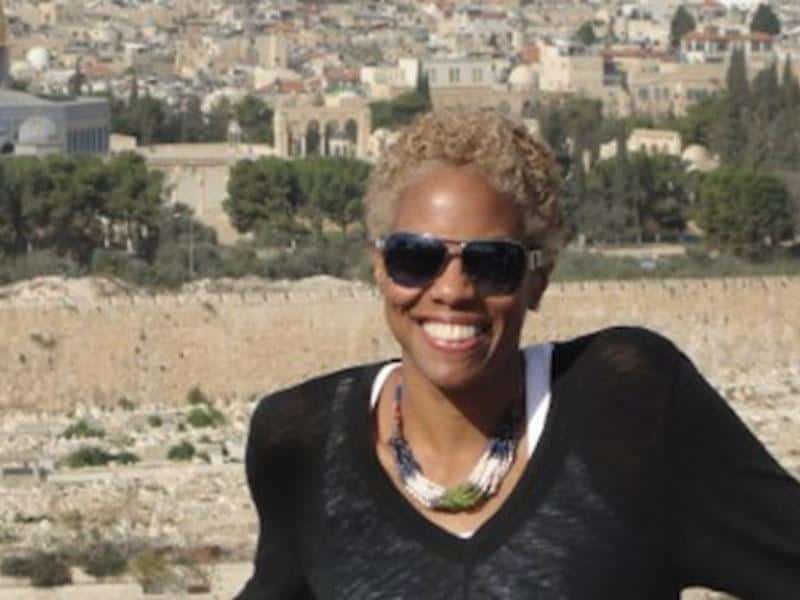60 Palestinians killed, more than 1700 injured, and most were unarmed. For the past few days, I’ve been trying to comprehend the violence that broke out once again between Israelis and Palestinians, this time in response to the opening of the new US embassy in Jerusalem. It felt surreal to be watching the ceremony of officials smiling and applauding the embassy when, at that exact moment, men, women and children were being tear gassed and gunned down.
What was even harder to witness is the lack of appreciation by many in our country of the inhumanity of it all. I don’t profess to have a deep understanding of the Israeli-Palestinian conflict, but I know that each side and their supporters believe they are fighting for what is right and what they believe they deserve—a homeland, freedom, dignity, and respect.
There have been countless talks and negotiations and ceasefires and accords in this conflict. Solutions have been proposed, but we don’t seem to be any closer to peace. The death toll, made up mostly of Palestinians, continues to rise. Peace is what we need to stop the bloodshed, but it appears that many leaders on both sides want something more than they want peace: they want to win.
Many of us who are outsiders to this incessant battle shake our heads in disbelief and disgust at one side or the other, or at the entire state of affairs. The difficulty of finding peace doesn’t just happen on the world stage. Many of our personal lives are also rife with seemingly intractable struggles.
We, too, say we want peace: peace within ourselves, with others, or with regard to a particular situation. But usually there’s something else we want even more. We want to be right, or we want others to recognize we have been wronged while we cling to our hurt and indignation and the narrative that supports our victimhood. Or we want a 100% guarantee of safety and security for ourselves or loved ones on the way to peace. Sometimes we want retribution, or to justify our choices and behavior even though they sustain turmoil or discord. Sometimes it feels like holding on to our stuff, our rights, our worldviews, our sense of superiority, and even our pain is better than doing what it would take to get to peace.
And let’s be real: Peacemaking is not for the faint of heart. Even when we opt for peace, we discover that it is, just as in the international context, a “process.” We learn that before we can find peace with others, we have to realize it in ourselves. And that involves some real work; it’s not just sitting in the lotus position under a tree thinking peaceful thoughts (although that can help). It takes self-examination, an awareness of what is at stake, and a conscious choice to give up some of the things we think we want or deserve. We have to be willing to stop the vicious cycle of blame, shame, anger, and the rehearsal of wrongs if we want healing and reconciliation to happen. Forgiveness—of one’s self and others—is essential. I’ve heard faith leaders and people who work in restorative justice define forgiveness as “giving up all hope for a different past.”
And yeah, I know, that’s not easy for us in our personal relationships—and certainly it’s incredibly hard on the global level when the past includes years of violence, injustice and trauma. In places of ongoing strife like Israel and Palestine, young people grow up exposed to the stories passed down by their elders – stories insisting that an entire group of people are out to get them – that they are the enemy. In our country and communities, we have a long history of bitter divisions and injustices across race, class and culture and many of our children are caught in the cycle of believing a particular group to be their adversary. How do we ever break out of this destructive dynamic and the rationalization of atrocities that accompany it?
Do we start with the personal? Can we examine the distance we’ve created between ourselves and the “other” that allows us to make all kinds of assumptions and judgments about them and nurture our anger and hatred against them? Are we willing to consider what the “other” has experienced—or is still experiencing? Are we willing to see ourselves in our foes and close the gap between us? Would this allow us to put down our weapons and save our collective lives?
No matter where we’re seeking peace—in ourselves, with others, on a local or global stage— we need an enormous amount of faith that peace actually is possible. We need to be able to imagine a different present and future for ourselves. We have to believe that we can do better than the massacre we witnessed this week. We have to have faith that ultimately we will see our shared humanity.
But Lord knows, all this is easier said than done. Opening hearts and hands and closing gaps may be the ideal, but who’s crazy enough to go into a war zone without their hearts protected and their weapons raised? When you think about it, hoping for peace in this crazy world is a crazy idea. When we feel that calm within us, when strife ends and peace ensues between two people, families, communities or countries, it’s a miracle.
The truth is, most of the time, peace doesn’t happen. But that doesn’t mean we shouldn’t strive for it anyway. I think this is the elevated energy we need in the world right now. The question is just how many of us are willing to try it? Maybe if we commit ourselves to peace we could move toward it— in our own lives and in our whole world. Like the song says, “Let there be peace on earth, and let it begin with me.”
So, what does peace mean to you? What have you done to try to achieve it in your life? How do you keep yourself striving towards it in the face of impossible odds? I hope you’ll continue the conversation with me on Facebook, Twitter and Instagram.


